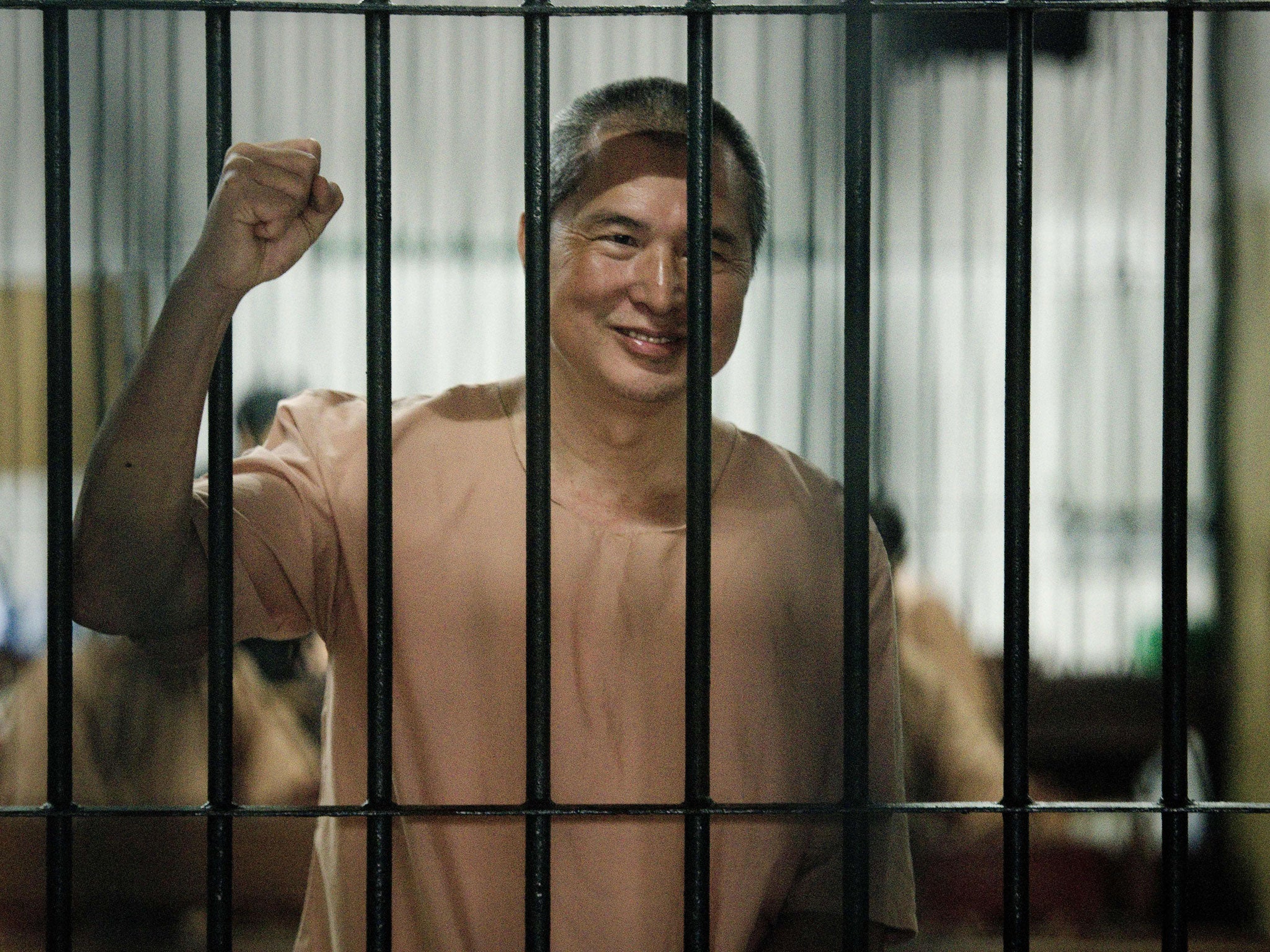Thai magazine editor jailed for 11 years for insulting king

A high-profile activist and magazine editor has been sentenced to 11 years in jail after he was convicted of defaming Thailand’s monarchy – the latest case involving the country’s increasingly controversial lese majeste laws.
The Criminal Court in Bangkok convicted former magazine editor Somyot Prueksakasemsuk over two articles deemed offensive to the royal family. But observers say they believe the activist was being punished less for what he wrote than for his role in trying to reform the strict defamation laws, which critics are often used for political reasons.
“We accept the ruling but we will appeal,” Mr Somyot’s lawyer, Karom Polpornklang, told the AFP. “I can confirm that he did not intend to violate article 112. He was doing his job as a journalist. We will seek bail for him.”
The lese majeste laws were established to protest Thailand’s king and other members of the royal family from comments or statements that could be deemed to damage the institution. King Bhumibol Adulyadej, 85, who is widely admired by many Thais even if other members of the royal family are not, has been in hospital since September 2009.
But activists say the laws have increasingly been used for political reasons and to pursue members of the Red Shirt movement and others who were largely supportive of former prime minister Thaksin Shinawatra. The law carries a maximum penalty of 15 years in prison and a minimum sentence of three years behind bars.
Mr Somyot was among those wishing to reform the law and alter article 112 of the criminal code to reduce the maximum punishment to three years and scrap the minimum sentence all together. As the law currently stands, ordinary Thais are prevented from having any meaningful public discussion or debate about the defamation law, or indeed issues such as who will succeed the ailing King Bhumibol.
The sentence handed out on Wednesday to Mr Somyot, who had been held in custody for a year and who was brought into court in shackles, has been widely condemned by campaigners both in Thailand and internationally. The articles had been published in the now-defunct Voice of Thaksin magazine.
“The courts seem to have adopted the role of chief protector of the monarchy at the expense of free expression rights,” said Brad Adams, Asia director at New York-based Human Rights Watch. “The court’s ruling appears to be more about Somyot's strong support for amending the lese majeste law than about any harm incurred by the monarchy.”
The delegation of the EU to Thailand said the ruling undermined the right to freedom of expression. “At the same time, it affects Thailand’s image as a free and democratic society,” it added in a statement.
Several labour groups, including the Clean Clothes Campaign and the Thai Labour Campaign, also voiced their anger over the sentence.
The issue of lese majeste is inextricably linked to the political turmoil that has gripped Thailand since Mr Thaksin was forced from office in a coup in 2006 and which in 2010 saw more than 90 people killed in protests on the streets. In the summer of 2011, his sister Yingluck Shinawatra, won a historic victory to become Thailand’s first premier and vowed that her government would order a review of the controversial lese majeste law.
However, persistent fears that the army might try and stage another coup or that so-called Yellow Shirt opponents might take over the streets in mass protests, appears to have persuaded Ms Yingluck that reforming the law is not a priority for her. Last year, a government advisor told The Independent that they had decided to leave the issue alone.
“Unfortunately, the failure of this government to review the lese majeste law is entirely predictable,’ said Duncan Duncan McCargo, an expert on South East Asian politics at Leeds University. “Yingluck Shinawatra is performing a delicate balancing act to preserve the political deal which keeps her in office - and doing so involves keeping the country’s conservative institutions, including the palace, the judiciary and the military onside.”
The judge in Mr Somyot’s case found that two articles he published under a pseudonym contained material that defamed the royal family. They said that given his experience as a journalist he should have been aware of what he was doing. He was sentenced for five years for each article, plus the year he had already spent in custody.
Though Mr Somyot said he will appeal the decision, he made clear he will not seek a royal pardon.
Join our commenting forum
Join thought-provoking conversations, follow other Independent readers and see their replies
Comments
Bookmark popover
Removed from bookmarks